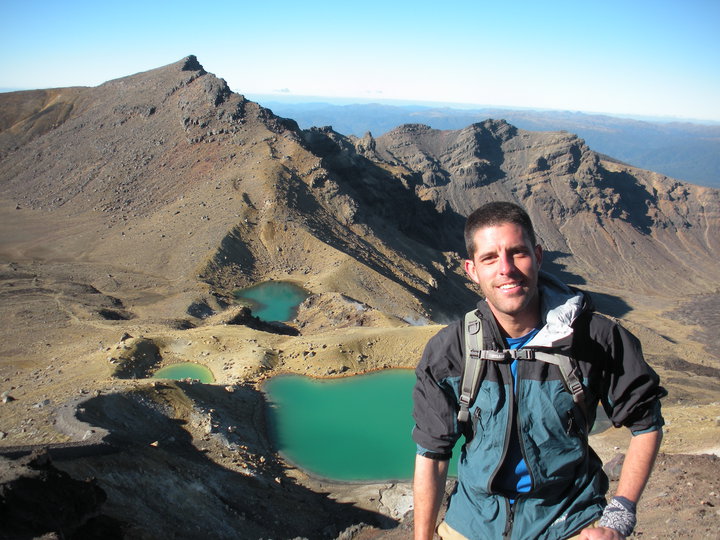Education
Colin Doyle on Developing Sustainability
by Michell Spoden
I am excited to share my correspondence with Colin Doyle of the Lost Valley Educational Center about the educational work his organization has been doing for over two decades.
Michell: Please tell our readers a bit about you.
Colin Doyle: I live and work at Lost Valley Educational Center, where I’ve been for two years. For much of that time, I have been the Program Director, in charge of running our courses and hosting outside events. My role recently evolved into being the Director of Permaculture Systems, my prime directive being to get more functional permaculture systems in place at Lost Valley. This will likely include things such as composting or biodigesting toilets, rainwater catchment off roofs, greywater systems, completed natural buildings, and many smaller projects. This is so that we ‘walk the talk’ more, make ourselves more independent/resilient, and become a more inspiring and appealing place for people to come in the future. I am still involved with running courses as well.
Michell: What is Lost Valley and how did it begin?
Colin Doyle: Lost Valley Educational Center is both a 501(c)3 nonprofit education center and an intentional community. On the business side, we run or host courses in sustainability skills – permaculture courses being the flagship – and rent our classrooms, dorms, etc. to outside groups that often run events or workshops themselves, such as personal development programs. We have been doing this since our founding in 1989. On the residential side, we have around 40 people who live on site, either working as staff or volunteers in the non-profit or simply renting a dwelling. This is a community of people who want to live with each other (as opposed to in anonymous society) and be more ecologically responsible while doing so. We call ourselves an “aspiring ecovillage,” and are currently in the process of forming an official community entity so as to create some separation between the education center and the long-term residential community.
Lost Valley began in 1989 when a small group of like-minded friends from the Bay Area was looking for a piece of rural land where they could start an ecovillage. The site was in poor condition, having been constructed two decades before by Shiloh Christian Camps but lost by that group for tax reasons. Through luck and determination, two founding members purchased Lost Valley and started it on its track to the present.
Michell: Have you had any previous experience working in a place like this?
Colin Doyle: This is unintentionally a two-part question. Have I worked in an educational center before? Yes, but not quite like this. Before coming to Lost Valley, I taught hiking-based outdoor science to 5th- and 6th-graders for two years, in the mountains of Southern California and New Hampshire. I also led backpacking and other trips with teenagers for three summers. So I have done plenty of educating of children and teenagers, but not teaching adults in permaculture or allied areas.
Have I lived in an intentional community (such as an ecovillage or commune or co-op) before? No, this is my first time. I came to an outwardly-minded community both to support my very strong belief in ecological responsibility and to live with people while doing so. To me, the village is the one human organizational structure that has proven itself over the millenia to work, and we will return to such an arrangement whether we want to or not. So I choose to live intentionally with my neighbors and co-workers, as a model and for my own benefit and enjoyment.
Michell: How many people have you served since you started?
Colin Doyle: I don’t know how many people Lost Valley has served in our 23 years, as visitors, event or course participants, residents, or otherwise. We have a large capacity, as we have a great meadow for camping and two dormitories, plus units for residents. The number served on site since 1989 is doubtless several thousand, and many others have been inspired by what they’ve seen on our website.
Michell: Why did you choose the state of Oregon for your center?
Colin Doyle: The founders of Lost Valley came from the Bay Area and were looking for inexpensive land, and so explored Oregon. Lost Valley therefore grew out of the progressive culture of the West Coast, and is less likely to happen in other parts of the country. The organization that built most of our infrastructure was Shiloh, and this was their national headquarters. I don’t know why they chose Oregon as their hub of operations.
Michell: Do you have any new goals or plans for the organization at this time?
Colin Doyle: Yes. As I mentioned, we are putting more emphasis for the near future into bolstering our on-site permaculture systems. We are also looking to host more outside events, as a rustic conference center. And we are looking to provide a structure in which residents can live solidly on our land for many years, providing a consistent base to both the community and non-profit, as high turnover has traditionally been a problem.
Michell: Are animals welcome when staying overnight?
Colin Doyle: Visitors should leave their pets at home when visiting, though a certain number of companion animals are allowed as residents. There have been numerous discussions amongst those living at Lost Valley about what level of pets in most appropriate at an aspiring sustainability center.
Michell: Can you explain briefly what a permaculture design certificate is and how long it takes to attain one at Lost Valley?
Colin Doyle: A Permaculture Design Certificate (PDC) is the standardized baseline certification for permaculture knowledge. A course that grants one must have 72 hours of instruction time from teachers and include all the major topics covered in Bill Mollison’s Permaculture, A Designer’s Manual. This standard is usually followed at permaculture education centers all over the world, and as a result the PDC is a common and known entity. Lost Valley’s courses that grant a PDC are as short as two weeks (there is one such course every December) and as long as five weeks. Our courses are unusual, because few PDC classes are offered in a community setting like Lost Valley – this is a special feature that some students are attracted to.
Michell: Who can benefit from a permaculture design certificate?
Colin Doyle: Everyone can benefit from a Permaculture Design Certificate, as it provides a way of thinking about the world, a method of working with (not against) natural flows, and being cognizant of what ones effects are on the world around them. A PDC also includes practical knowledge of soil building, water on the landscape, gardening, forestry, appropriate technology, and other areas. I think the more people who have taken a permaculture course, the better everyone and everything will be.
Michell: What are the most popular types of certificates people get from your center?
Colin Doyle: We offer one certificate now, which is the PDC. Up until two years ago, we also offered the Ecovillage Design Education (EDE) certificate, which is focused on how to make social/communal living work. It is an example of social permaculture. We may offer this course (in conjunction with a PDC) again in the future.
Michell: Do you feel that your organization has had adequate media attention throughout the years?
Colin Doyle: I have been at Lost Valley for only 2 of its 23 years, so I’m not best placed to answer this question. However, I know that Lost Valley has been prominently featured in articles about intentional communities for some time, and is one of the better known ecovillages in the country. We are also a known name in permaculture education circles (as well as personal growth circles in Oregon). A magazine titled Talking Leaves was published at Lost Valley for a number of years in the 1990s and early 2000s, and this helped contribute to knowledge of our areas of interest and activities.
You can find out about what is happening at Lost Valley now – including blog/articles, photos, upcoming courses, conference center facilities, and resident opportunities, at our website, http://lostvalley.org/
About the Author
Michell Spoden is the author of Stricken Yet Crowned and is also pursuing a transitional housing project for woman with an agricultural aspect. She has a degree in Business Science Administration and is finishing her bachelor’s in Project Management.




